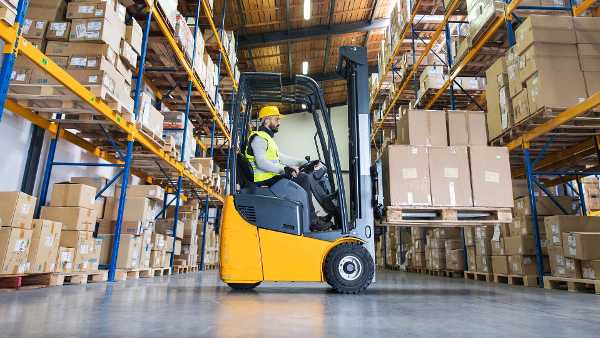Importing fruit or vegetables
- Marcel Hoebink
- The basis
- Edited 30 December 2025
- 8 min
- International
Foodstuffs like fruits and vegetables must be safe for consumers and are therefore subject to food safety requirements. The Netherlands imports large quantities of tomatoes, onions, bananas, oranges, and other fruits and vegetables from abroad.
When importing products from outside the EU, you have more obligations. In this article, you can read about what to watch out for when importing fruit or vegetables. This includes fresh, chilled, or frozen vegetables and fruit. Excluded are potatoes, nuts, and processed fruits and vegetables, such as canned goods.
General product requirements
The EU has product requirements for fruit and vegetables destined for the European market. Fruit and vegetables are subject to general requirements that apply to all food products. For example, you have to comply with the European General Food Law. This law states that of all food intended for consumption is mandatory at all stages of production, processing and distribution. As an importer, you must know where your fruit or vegetables come from and to whom you have supplied them. This way, you can quickly recall any unsafe products
The article on Importing food & beverage products lists the general requirements for all food & beverage products, such as hygiene legislation and the presence of harmful substances.
As an importer of foodstuffs, you must register with the Netherlands Food and Consumer Product Safety Authority (NVWA). You can find more information on the NVWA .
Specific requirements
The EU has set maximum levels for contaminants and in fruit and vegetables. If you import fresh and chilled fruit and vegetables from non-EU countries, you need a health certificate or phytosanitary certificate from your supplier. This certificate proves that the products are free of harmful organisms (diseases and pests).
The EU has marketing (in Dutch) for fresh and chilled fruits and vegetables, which consist of quality requirements and sales descriptions. Most fruits and vegetables are required to meet general marketing standards, while specific marketing standards also apply to certain products.
Organic fruit and vegetables
If you import organic fruit or vegetables, you have to meet additional requirements, for example, you need to have your company certified. Organic food and beverages from non-EU countries must meet standards equivalent to those applicable to organic foodstuffs produced in the EU.
Learn more
The following authorities provide more information on applicable requirements:
Centre for the Promotion of Imports from Developing Countries (CBI)
CBI helps exporters from developing countries export goods to the European market. Their market information is also useful for Dutch importers, as they have special pages on the European product requirements for fresh fruit and vegetables
NVWA
NVWA’s Online Veterinary Imports tool (in Dutch) will tell you if you are allowed to import certain foodstuffs (including fruit and vegetables) into the EU. It also provides information on additional requirements for foodstuff imports into the EU.
European Commission
On its Access2Markets portal, the European Commission provides information on import regulations for products imported from outside the EU. On the site, you will find video tutorials and English guidance on how to use Acces2Markets.
Video: Want to know the rules when importing? Use Access2Markets
Imports from EU countries
There is free movement of goods in the EU. If you import fruit or vegetables from another member state, you do not have to pay import duties. You do not have to declare the goods to customs either. Your supplier in the other EU country will usually charge 0% VAT. But only if you passed on your VAT identification number. You calculate 9% Dutch VAT on your purchase and report it in your VAT return. Then you can usually deduct this VAT as input tax in the same return.
Special situation Northern Ireland
Northern Ireland is part of the United Kingdom but it follows EU trade and customs rules since Brexit. You do not pay import duties and you do not file a customs declaration if you import from or export to Northern Ireland. VAT rules are the same as for trade with other EU countries.
Documents
When importing fruit or vegetables into the Netherlands from another EU country, you need an invoice. You may also need a packing list. If the goods are transportedd by a professional carrier, you need a waybill. This also applies when you import fruit and vegetables from Northern Ireland.
Imports from non-EU countries
When you import fruit or vegetables from a non-EU country, you have to file an import declaration with Dutch Customs. Your carrier or customs broker (in Dutch) will usually take care of this on your behalf for a fee, as well as advance paying any import duties and VAT that may be due. You will also need an EORI number, a mandatory identification number for anyone dealing with Customs. An import declaration and EORI number is not required when importing from Northern Ireland.
Import duties
If you import fruit or vegetables from a non-EU country, you will usually have to pay import duties. Import duty rates are linked to the product’s commodity code (also known as HS code or TARIC code). Determining the correct commodity code is tricky. The classification depends, for example, on the type of fruit or vegetable, but sometimes also on the period and the condition in which it arrives (e.g. fresh or chilled).
The commodity codes for fresh, chilled, and frozen vegetables start with 0702 to 0710. For fresh, chilled, and frozen fruit, codes start with 0803 to 0811. The complete list of HS codes can be found on the website of the World Customs Organization. The article How much import duty do I have to pay? includes examples of how to calculate import duties. If you cannot figure it out yourself, call the Customs Information Line, 0800 01 43.
Reduced or no import duties
Do you import fruit or vegetables directly from countries with which the EU has a trade agreement? Then you might pay less or no import duties. This is called tariff preference. These products must have been harvested in the treaty country. You can prove this with preferential certificates or declarations of origin such as EUR.1 certificate, invoice declaration, or other certificate of origin.
Tariff quotas
For some fruits and vegetables from certain treaty countries, there is a preferential tariff quota. This means you pay less import duty for a certain quantity of these products. You then need a preferential origin document or declaration from the treaty country. When the quantity is reached, the tariff quota is full. This is called ‘exhaustion of the tariff quota’. From then on, you pay higher import duties.
There are also tariff quotas for some fruit and vegetables from certain countries with no trade treaty with the EU. This is called a non-preferential tariff quota. Again, you can pay lower import duties for a certain quantity of these products. The condition is that the quota is not yet full.
Sometimes, when using a tariff quota, you need additional documents. For example, to import garlic from outside the EU, you need an import (in Dutch). And for fresh bananas from Mexico, a weight (in Dutch).
VAT
When you import products into the Netherlands, you pay Dutch import VAT. You are allowed to deduct this VAT as input tax in your VAT return, provided that you are entitled to deduct VAT. Do you regularly import goods from non-EU countries? You can apply for an Article 23 permit from the Netherlands Tax Administration. Then you avoid having to pay for VAT at the time of import. Instead, you can report the import VAT in your regular VAT return. This will benefit your liquidity.
Importing step by step
If you know how the importing process works, you will have a better chance of starting as an importer successfully. Use the Step-by-step plan for importing to go through all 14 steps of the importing process. From market research to drawing up a contract.
Documents
Are you importing from a country outside the EU? Then, in addition to the waybill, invoice, packing list, the required import declaration and any preferential certificates of origin, you will often have to deal with additional documents. Such as phytosanitary certificates, conformity control certificates and other certificates.
Phytosanitary certificates
Fresh and chilled fruits and vegetables must be healthy and free of harmful organisms. You usually need a phytosanitary certificate to import these products from a non-EU country. Your supplier can request this certificate from the competent authority in their country. Upon entry into the Netherlands, the Dutch Quality Control (Bureau Kwaliteits-Controle-Bureau, KCB) will assess (in Dutch) the documents and, if necessary, conduct a physical inspection of the products. On the website of the Dutch Food and Consumer Product Safety Authority (NVWA), you can also find information on document assessment and inspections (in Dutch).
Do you have an import shipment where you need a phytosanitary certificate? Then declare the shipment before it enters the EU in CLIENT Import. This is an NVWA online system. CLIENT Import forwards your declaration to the European system Traces. This system automatically creates a Common Health Entry Document for Plants and Plant products (CHED-PP, in Dutch: a GGB-PP). You can also use a customs agent with knowledge of clearing fruit and vegetables for the registration.
No phytosanitary certificate needed
You do not need a phytosanitary certificate if you import frozen fruit and vegetables. Or if yoou import fresh fruit or vegetables from Switzerland, Liechtenstein, or Northern Ireland. Nor do you need a phytosanitary certificate for coconuts, bananas, pineapples, dates, and durians from outside the EU.
Additional checks
Some fruits and vegetables from certain countries are temporarily subject to additional controls. This is due, for example, to the risk of pesticide residues. You can find a list of products covered by this control obligation in Annexes I and II of Implementing Regulation (EU) . For these products, you must pre-notify the shipment with a Common Health Entry Document for feed and food of non-animal origin (GGB-D in Dutch).
For Annex II products, you also need a phytosanitary certificate and a laboratory analysis from the country of dispatch. Your supplier requests these documents from the inspection authority in its country.
Certificates of conformity
Fresh and chilled fruits and vegetables must meet EU quality regulations. There are two different classes of marketing (in Dutch): general standards and specific standards. The KCB performs quality controls on fruit and vegetables imported into the EU. Several non-EU countries have been recognised as having equivalent marketing standard inspections to those of the EU. In these recognised countries, quality control is performed on consignments of fruit and vegetables before shipping to the EU. After that, the competent authority in the recognised third country issues a certificate of conformity. Fruit or vegetable consignments with a certificate of conformity are less likely to be inspected (in Dutch) in the Netherlands. For a list of recognised third countries, visit the website of KCB (Click ‘erkende landen’ a link on the right, under 'Formulieren & Documenten).
KCB also has a list of fruit and (pdf download in Dutch, on the Handelsnormen page) subject to declaration. These products require mandatory quality control and a declaration in CLIENT-import, an online system of the NVWA. You can use a customs agent with knowledge of clearing fruit and vegetables for the declaration.
Certificate of conformity not needed
You do not need a certificate of conformity for fruit and vegetable imported from Northern Ireland or for frozen fruit and vegetables.
Organic fruit and vegetables
If you import organic fruit and vegetables, you need a Certificate of Inspection for the import of products from organic production (COI). In the Netherlands this is known as Skal-certified (in Dutch). You do not need a COI if you import organic products from Norway, Iceland, Liechtenstein, Switzerland, or Northern Ireland.
Customs clearance companies for fruit and vegetables
There are customs forwarding agents and logistics service providers experienced in clearing fruit and vegetables. They have knowledge of import requirements and the necessary documents.


